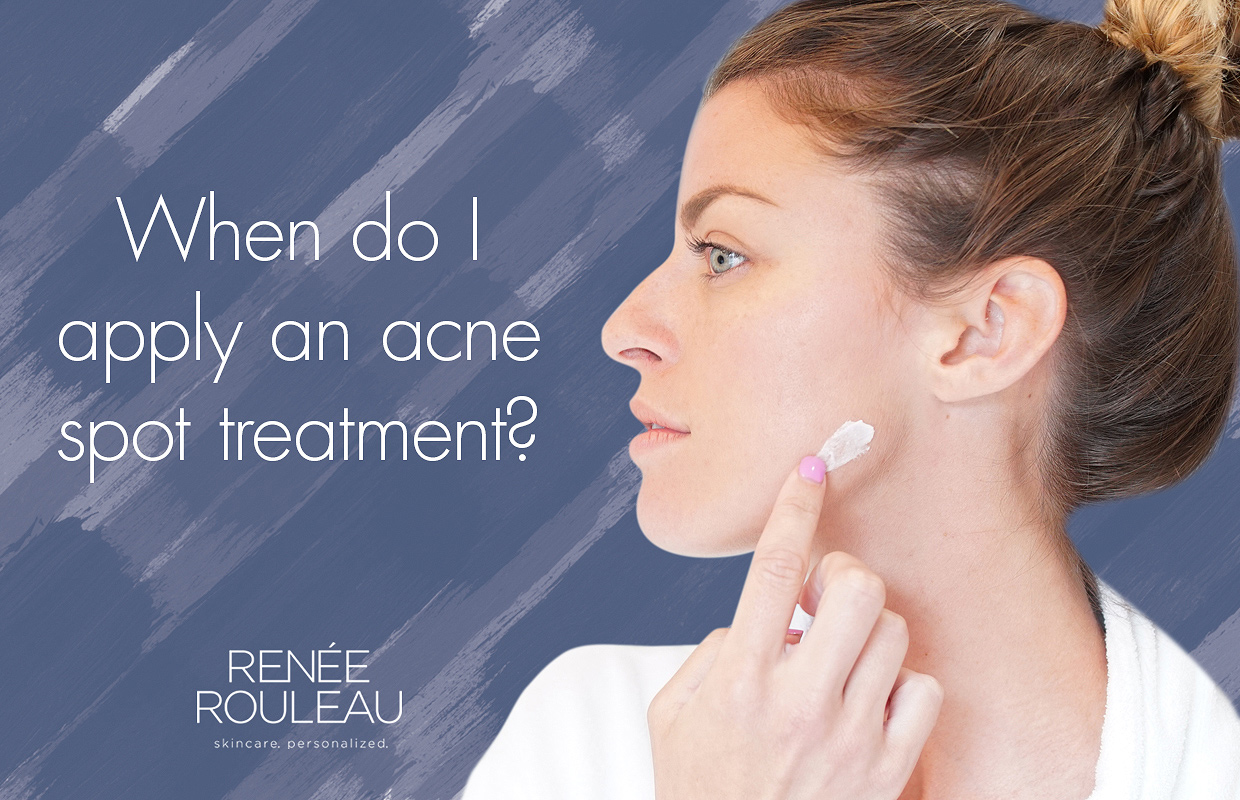Use acne gel when you start noticing pimples or if you have a breakout. It’s best applied after cleansing the skin.
Dealing with acne can be a frustrating experience, but the right treatment makes all the difference. Acne gels are designed to target and treat blemishes directly. These topical treatments often contain active ingredients like salicylic acid or benzoyl peroxide, which are effective in reducing inflammation and killing acne-causing bacteria.
Applying acne gel to affected areas after a thorough skin cleansing helps the medication penetrate pores and work effectively. While everyone’s skin is unique, incorporating acne gel into your skincare routine at the first sign of acne can prevent further development of pimples and promote clearer skin. Remember to choose a gel suitable for your skin type and to use it consistently for the best results.
Introduction To Acne And Its Treatments
Acne affects millions worldwide, manifesting as pimples, blackheads, and cysts. Acne treatment varies, aiming to reduce outbreaks and prevent scarring. Let’s explore when to turn to acne gel and other remedies.
The Prevalence Of Acne
Acne is not just a teenage concern; it spans all ages. It often surfaces during hormonal changes. Stress, diet, and genetics also play roles.
Common Acne Therapies
Options for treating acne include:
- Topical treatments, like acne gels, creams, and lotions
- Oral medications, such as antibiotics or hormone regulators
- Lifestyle changes, including diet and skincare routines
Acne gel is often the first line of defense. It targets bacteria and reduces inflammation. It’s best applied to clean, dry skin, typically once or twice daily.

Credit: m.youtube.com
Understanding Acne Gels
Struggling with acne can feel like an uphill battle. Choosing the right treatment makes all the difference. Acne gels are a popular choice for their ease of use and effectiveness. Knowing when to use them is key to clear skin.
Active Ingredients In Acne Gels
Acne gels boast powerful components that target pimples. Look for these key ingredients on labels:
- Benzoyl Peroxide: Kills bacteria and reduces inflammation.
- Salicylic Acid: Unclogs pores and prevents new breakouts.
- Retinoids: Speed up cell turnover to improve skin texture.
- Niacinamide: Soothes skin and reduces redness.
Each ingredient has a unique role. Match them to your skin’s needs.
How Acne Gels Work
Acne gels are designed to penetrate the skin and deliver active ingredients directly to the source of the acne. Here’s how they tackle the problem:
- They break down dead skin cells that clog pores.
- The gels kill acne-causing bacteria to reduce swelling.
- They regulate oil production to prevent future outbreaks.
Apply as directed, usually after cleansing. Consistent use brings the best results.
Determining Your Skin Type
Determining your skin type is a crucial step before using any skincare product, especially acne gel. Your skin’s needs can vary greatly depending on whether it’s oily, dry, combination, or sensitive. This knowledge will guide you in choosing a product that can effectively tackle your acne without causing additional issues.
Identifying Your Skin Concerns
Before selecting an acne gel, take a moment to assess your skin. Look for signs of oiliness, dry patches, or redness. Consider the frequency of your breakouts and their locations. This will help you pinpoint the specific treatment that your skin requires.
Skin Type And Acne Gel Compatibility
Different skin types respond to acne treatments in unique ways. Here’s a simple guide to help you understand which acne gel might suit your skin type:
- Oily Skin: Gels with salicylic acid work well to unclog pores.
- Dry Skin: Hydrating ingredients alongside acne-fighting agents are essential.
- Combination Skin: A balanced formula that doesn’t overly strip oils is key.
- Sensitive Skin: Look for gels with soothing components to reduce irritation.
For precise guidance, consider a patch test or consult with a dermatologist.
Best Times To Apply Acne Gel
Choosing the right time to apply acne gel can enhance its effectiveness. Here’s how to integrate it seamlessly into your skin care routine.
Daily Skin Care Routine
Integrating acne gel into your daily skin care is crucial. Follow these steps:
- Clean your face gently with a mild cleanser.
- Pat your skin dry with a soft towel.
- Apply a small amount of acne gel to affected areas.
- Finish with a non-comedogenic moisturizer.
Apply acne gel twice daily, morning and night, for best results.
Acne Gel And Sun Exposure
Be mindful of sun exposure when using acne gel. Some key points include:
| Time of Day | Precaution |
|---|---|
| Morning | Apply sunscreen after acne gel. |
| Throughout the day | Reapply sunscreen every two hours. |
| Evening | No direct sun, no extra precaution needed. |
Using sunscreen is essential to protect your skin. Choose an SPF 30 or higher.
Combining Acne Gel With Other Products
Combining Acne Gel with Other Products can be tricky. You want to maximize benefits without harming your skin. Knowing how to layer and what to avoid is key.
Layering Skin Care Products
Layering skin care correctly enhances the effectiveness of your acne gel. Follow these steps:
- Cleanse your skin to remove dirt and oils.
- Apply any toners or essences if you use them. Let them dry.
- Apply your acne gel carefully. Dab it on affected areas.
- Wait a few minutes, then apply moisturizer to lock in hydration.
- Finish with sunscreen during the day to protect your skin.
What To Avoid
Some products do not mix well with acne gels. Here are key items to avoid:
- Avoid other topical acne treatments in the same routine. They can irritate.
- Steer clear of oils before applying acne gel. Oils can block its absorption.
- Skip exfoliating acids like AHAs or BHAs with your acne gel. They can over-dry.
Remember, always introduce new products slowly. Monitor how your skin reacts.
:max_bytes(150000):strip_icc()/how-to-create-the-perfect-skin-care-routine-15658-5bb7bfbb46e0fb0026df2440.png)
Credit: www.verywellhealth.com
Monitoring Acne Progress
Monitoring Acne Progress is crucial when using an acne gel. It helps you understand your skin’s response to the treatment. Observing changes carefully ensures you can adjust your routine for the best results. Let’s dive into when you should start seeing improvements and how to track your skin’s journey effectively.
When To Expect Results
Acne gels contain active ingredients that take time to work. Patience is key. After starting an acne gel, it might take several weeks before noticing visible changes. This timeline varies from person to person, as skin types and conditions differ. Let’s outline a general expectation:
- Week 1-2: Skin adapts to the treatment; few changes are noticeable.
- Week 3-4: Initial improvement can appear; some acne might start to diminish.
- Week 5-6: More significant results; clearer skin should emerge.
Tracking Improvements And Flare-ups
Keeping a record of your skin’s response helps in assessing the gel’s effectiveness. Use the following methods to track your progress:
| Date | Acne Severity | Notes |
|---|---|---|
| Day 1 | Moderate | Started acne gel |
| Week 2 | Mild to Moderate | Some drying and peeling |
Take photos in consistent lighting to visually track changes. Compare weekly photos to spot differences. Journal any new pimples, irritation, or other reactions. This log helps your dermatologist make necessary adjustments to your treatment plan.
When To Consult A Dermatologist
Dealing with acne can be frustrating. Acne gels offer a solution for many. But sometimes, they don’t deliver results. Knowing when to seek professional help is key. A dermatologist can provide expert advice tailored to your skin.
Persistent Acne Issues
Do you see no improvement after using over-the-counter gels? Persistent acne may need a dermatologist’s touch. Breakouts that last for weeks or worsen suggest you need more than gels. Look for signs like deep cysts, scarring, or severe redness.
- Acne lasting more than eight weeks
- Severe breakouts causing pain or discomfort
- Over-the-counter treatments not working
Professional Treatments Vs. Over-the-counter Gels
A dermatologist can offer advanced treatments. These may include prescription-strength creams, oral medications, or laser therapy. Compare this to store-bought gels which have limited strength and may not target all acne causes.
| Professional Treatments | Over-the-Counter Gels |
|---|---|
| Customized to your skin type | General formula for all |
| Targets multiple acne causes | May target only surface issues |
| Includes follow-up care | No professional follow-up |

Credit: www.rosemaryhealth.com.au
Lifestyle Considerations And Acne Management
Understanding the link between lifestyle choices and acne is crucial. Certain habits can trigger or worsen acne. Knowing when to use acne gel, along with lifestyle adjustments, can lead to clearer skin. Let’s explore how diet and stress play roles in acne management.
Diet And Acne
What you eat may affect your skin. Evidence suggests a connection between certain foods and acne flare-ups. Here are key dietary tips:
- Limit dairy and high-glycemic foods to reduce potential breakouts.
- Incorporate foods rich in omega-3 fatty acids like salmon and flaxseeds for skin health.
- Stay hydrated by drinking plenty of water throughout the day.
Consider an acne gel application if dietary changes alone aren’t helping.
Stress And Its Effects On Acne
Stress can increase the body’s production of hormones that lead to acne. Managing stress is a key component of acne treatment. Here’s what can help:
- Regular exercise helps reduce stress and improve skin health.
- Adequate sleep is essential for stress reduction and skin repair.
- Mindfulness practices like meditation can calm the mind and reduce stress-related acne.
Use acne gel to target stubborn spots, especially during stressful periods.
Conclusion: Personalized Acne Care
Everyone’s skin is unique, so acne treatment is not one-size-fits-all. Finding the right acne gel requires understanding your skin type, acne severity, and how ingredients react with your skin. Let’s wrap up with some key takeaways for personalized acne care.
Summarizing Key Points
- Identify your skin type: Oily, dry, combination, or sensitive.
- Understand acne severity: Mild, moderate, or severe.
- Choose active ingredients wisely: Salicylic acid for unclogging pores, benzoyl peroxide for killing bacteria, or retinoids for cell turnover.
- Read product labels: Match your skin’s needs with the gel’s formula.
- Consult a dermatologist: Get professional advice for your skin concerns.
Encouraging Consistent Care And Patience
Consistency is key in acne treatment. Use acne gel as directed, often once or twice daily. Remember, skin improvements take time. Stay patient. It may take several weeks to notice changes. Keep a routine. Do not switch products too quickly. Give your skin time to adapt. Celebrate small victories in your journey to clearer skin.
Frequently Asked Questions
Should I Put Acne Control Gel Before Or After Moisturizer?
Apply acne control gel before moisturizer to allow direct skin contact. This maximizes the gel’s effectiveness. Follow with moisturizer to hydrate and protect your skin.
Can I Use Acne Gel Everyday?
Yes, you can use acne gel every day, but always follow the product’s specific instructions. It’s important to monitor your skin’s response to ensure it doesn’t become overly dry or irritated. Consulting a dermatologist can also provide personalized guidance.
Can I Use Acne Gel In The Morning?
Yes, you can use acne gel in the morning. Always follow the product’s instructions and apply sunscreen if you’re going outdoors, as some ingredients may increase sensitivity to sunlight.
Is It Better To Use Acne Products At Night Or Morning?
Acne products can be effective both morning and night. Nighttime use allows active ingredients to work undisturbed. Morning application provides all-day treatment but always follow with sunscreen to protect your skin. Check product instructions for specific recommendations.
Conclusion
Deciding on the right time to apply acne gel can be pivotal for clear skin. Pay attention to your skin’s needs and start treatment at early pimple stages. Consult a dermatologist for personalized advice. Remember, the correct use of acne gel can lead to healthier, blemish-free skin.

